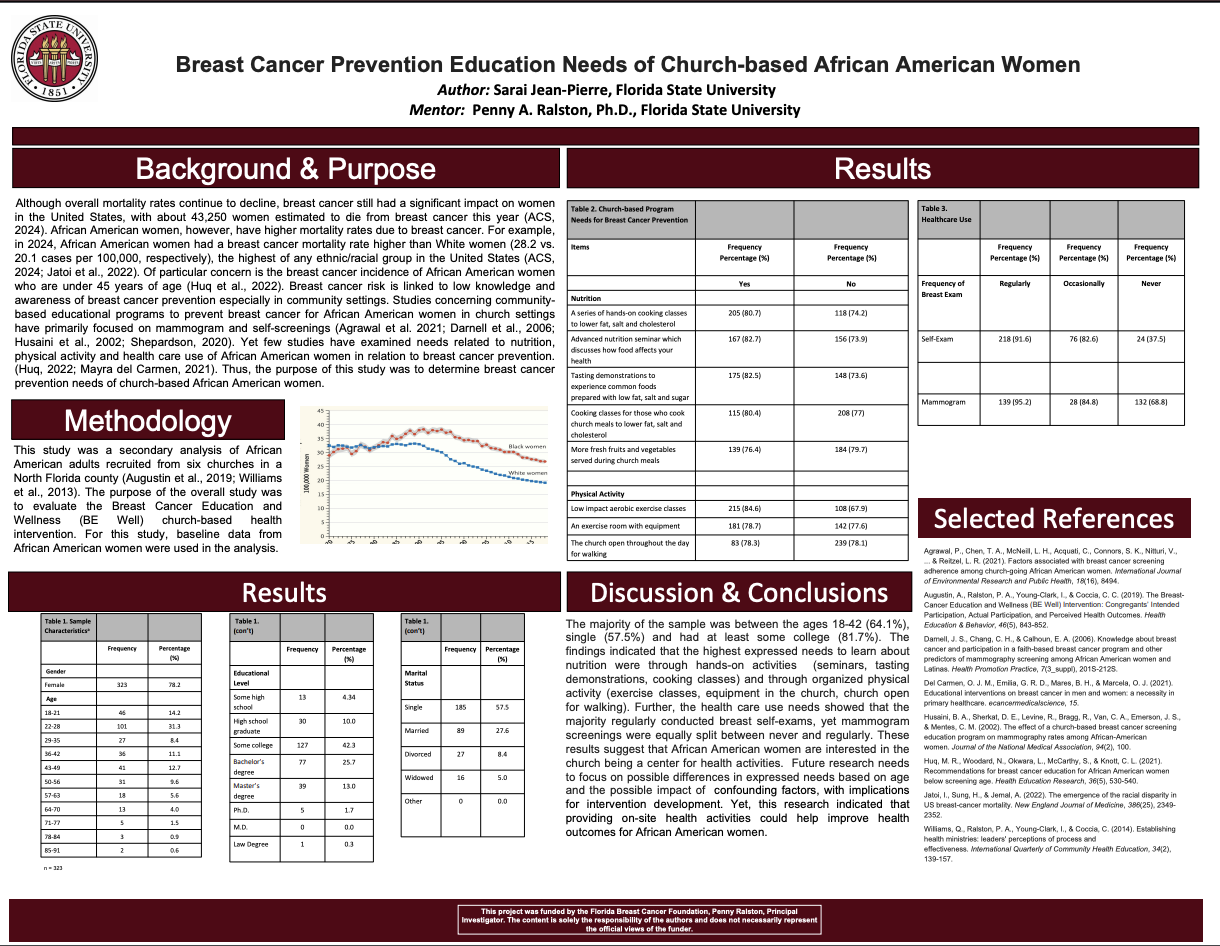Research Symposium
24th annual Undergraduate Research Symposium, April 3, 2024
Sarai Jean-Pierre Poster Session 3: 1:30 pm - 2:30 pm /105
BIO
A motivated student with a strong work ethic and a commitment to engage in learning and research activities to improve health care for medically underserved populations. Experienced in behavioral research with caregivers of individuals with Alzheimer’s Disease, and community church-based breast cancer prevention education for African American women. Dedicated to continuing academic pursuits at the college level in preparation for a career in health care and research. Pursuing a bachelors degree in Psychology with plans to attend medical school.
Breast Cancer Prevention Education Needs of Church-based African American Women
Authors: Sarai Jean-Pierre, Dr. Penny RalstonStudent Major: Psychology (Pre-Med Track)
Mentor: Dr. Penny Ralston
Mentor's Department: Department of Human Development & Family Sciences Mentor's College: College of Health & Human Sciences Co-Presenters:
Abstract
The purpose of this study was to determine breast cancer prevention needs of African American women with the specific research objective of identifying nutrition, physical activity, and healthcare use needs of African American women. This study is a secondary analysis of the Breast Cancer Education and Wellness (BE Well) Project which involved data collected from American adults (>18 years of age, n=421) recruited from six churches in a North Florida county. For this study, baseline data from the females in the sample are analyzed (n=323). The results showed that the majority of the African American women were between the ages 18-42 (64.8%) and had at least some college (42.3%). The highest expressed needs to learn about nutrition were through hands-on activities (63.5) and through organized physical activity (66.6%). Additionally, the majority regularly conducted breast self-exams (68.6 %), yet mammogram screenings were equally split between never (44.1%) and regularly (46.5%). These results suggest that further analyses are needed to determine possible differences between age groups (younger, midlife and older) and to examine possible confounding factors. The next steps of this research will delve deeper into understanding these potential differences.
Keywords: breast cancer, african american, church-based, women

